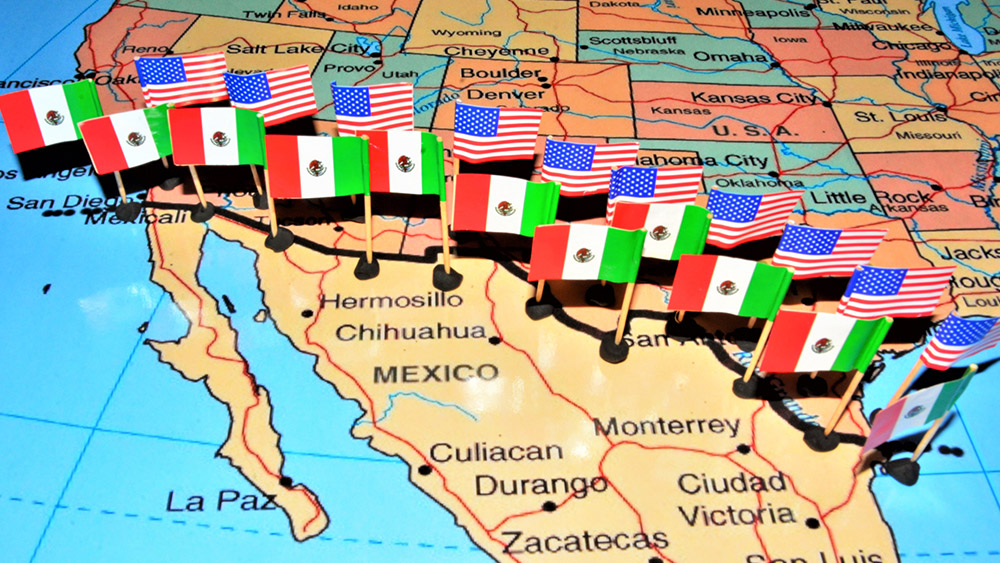 Parler
Parler Gab
Gab
- U.S. public support for Israel has plummeted, with polls showing a dramatic reversal in sympathy toward Palestinians.
- Younger voters, both Democrats and Republicans, increasingly oppose unconditional military aid to Israel.
- High-profile Republicans, including Marjorie Taylor Greene and Tucker Carlson, now openly criticize U.S. backing of Israel.
- AIPAC’s influence is waning as progressive Democrats challenge pro-Israel orthodoxy.
- The Gaza war has exposed deep generational and ideological divides, reshaping U.S.-Israel relations.
Republicans fracture over “America First” vs. Israel loyalty
Historically, Republicans have been Israel’s staunchest defenders. Yet a growing faction—led by MAGA-aligned figures like Marjorie Taylor Greene and Steve Bannon—now argues that Israel drags America into unnecessary conflicts. Greene’s viral tweet condemning U.S. funding for “genocide” encapsulates this revolt: “I don’t want to pay for genocide in a foreign country against a foreign people for a foreign war.” Even Tucker Carlson, once a vocal Israel supporter, has reversed course, accusing the Jewish state of exploiting U.S. resources. This backlash reflects a broader isolationist wave within the GOP, fueled by frustration over Ukraine aid and a belief that America should prioritize domestic issues.Democrats’ rapid shift: From criticism to rebellion
Democrats have moved faster. Progressive lawmakers like Rep. Cori Bush—ousted in a primary after AIPAC spent $9 million against her—have long criticized Israel’s occupation. But now, even mainstream Democrats are hardening their stance. In July, 24 Senate Democrats voted to halt an arms shipment to Israel—a once-unthinkable move. Rep. Jake Auchincloss, representing a heavily Jewish district near Boston, admits his constituents’ views shifted rapidly after Gaza’s humanitarian crisis worsened. His policy memos on Israel have been revised 23 times this year alone.AIPAC’s waning grip on U.S. politics
The American Israel Public Affairs Committee (AIPAC), long a dominant force in Washington, is losing its stranglehold. Once able to silence dissent with ease, the lobby now faces unprecedented resistance. A recent House letter opposing Palestinian statehood—backed by AIPAC—garnered fewer than 30 signatures, while a rival letter supporting recognition drew 47. “The ground is shifting,” observes Haaretz, noting that AIPAC’s influence is “waning” among Democrats.The inevitable reckoning
The Gaza war has exposed a generational and ideological divide that will reshape U.S. policy. Younger Americans, disillusioned by Israel’s rightward shift and the staggering civilian toll, no longer accept the old bipartisan consensus. As Politico’s Felicia Schwartz warns, “A collision looks unavoidable.” With Trump’s GOP fracturing and Democrats increasingly vocal, the era of unconditional U.S. support for Israel may be ending—ushering in a new, contentious chapter in Middle East diplomacy.A relationship at a crossroads
The U.S.-Israel alliance, once unshakable, now faces its greatest test. Public outrage over Gaza, combined with shifting generational attitudes, has forced politicians to reconsider long-held positions. Whether this leads to a fundamental policy change or merely rhetorical adjustments remains uncertain. But one thing is clear: America’s love affair with Israel is over—and the fallout will redefine Middle East politics for decades to come. Sources for this article include: RT.com TheEconomist.com Mondoweiss.netU.S. surveillance flights over Mexico signal escalating cartel crackdown under Trump
By Belle Carter // Share
Senate hearing exposes FLAWS of Google’s election content moderation
By Kevin Hughes // Share
U.S. Air Force tests unarmed Minuteman III ICBM amid Trump’s call for nuclear testing resumption
By Kevin Hughes // Share
Four more suspects arrested in alleged ISIS-inspired Halloween terror plot across three states
By Patrick Lewis // Share
Governments continue to obscure COVID-19 vaccine data amid rising concerns over excess deaths
By patricklewis // Share
Tech giant Microsoft backs EXTINCTION with its support of carbon capture programs
By ramontomeydw // Share
Germany to resume arms exports to Israel despite repeated ceasefire violations
By isabelle // Share










